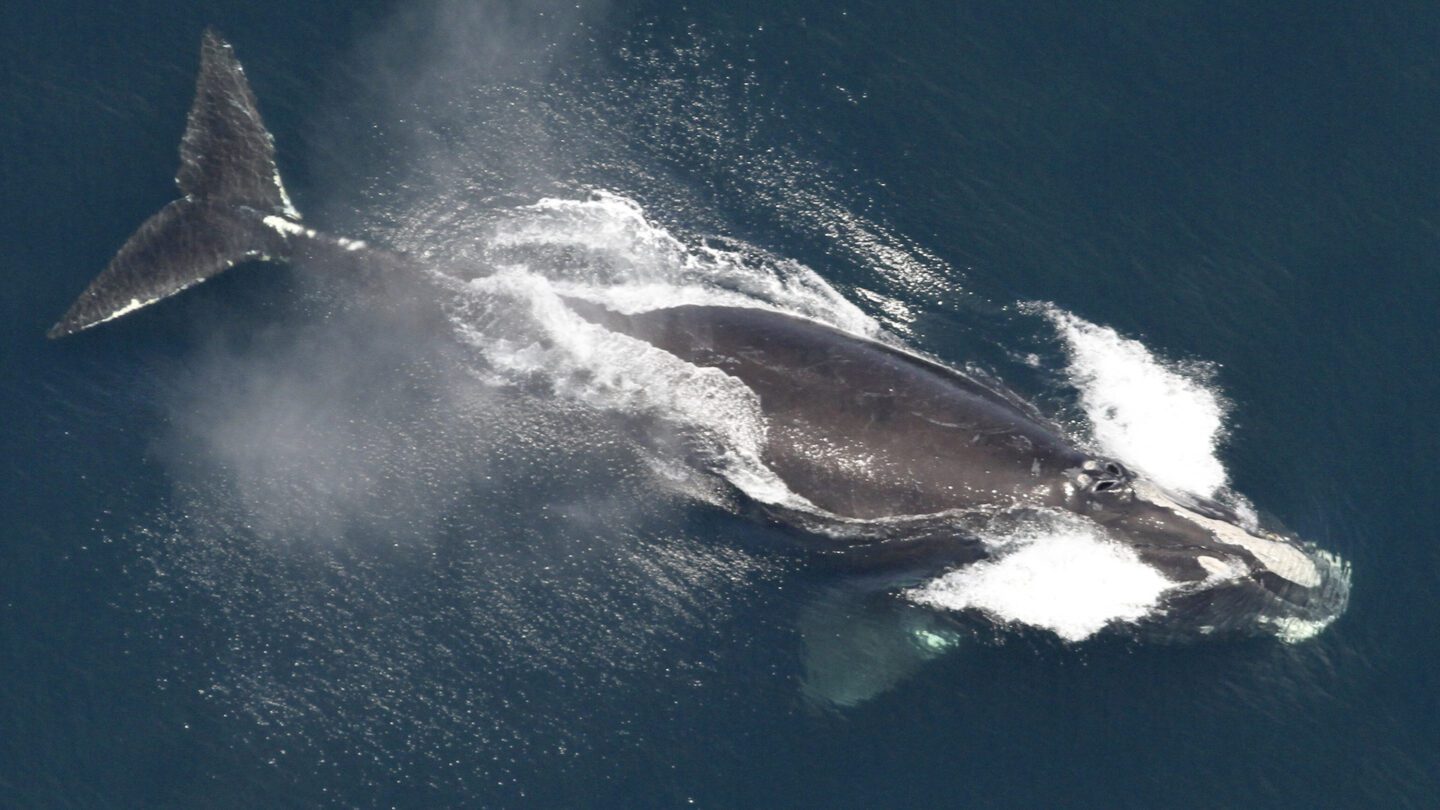A Georgia congressman has proposed a yearslong delay in changes to federal rules meant to protect vanishing whales, prompting a rebuke from environmental groups who say the animals need protection now.
The delay proposed by Republican Rep. Buddy Carter concern new vessel speed rules issued by the National Marine Fisheries Service that are being finalized by the federal government. The proposed rules, which are much anticipated by shippers and fishermen, would expand protective slow zones off the East Coast and require more ships to slow down.
The rules are designed to protect the North Atlantic right whale, which numbers less than 360 and is vulnerable to collisions with large ships. Carter’s bill states that it would prevent any amendments or updates to the right whale vessel strike reduction rule until Dec. 31, 2030.
The government’s proposed rule changes would “cause grave safety issues for recreational vessels and pilot vessels alike” and economic harm, Carter said in a statement. A hearing on Carter’s bill was held June 27.
Several conservation groups said Tuesday that the proposal is shortsighted and will jeopardize the whales. The animals have been in need of protection from ship strikes and entanglement in fishing gear for years and can’t withstand more delays, said Gib Brogan, campaign director with environmental group Oceana.
Brogan and Jay Petrequin, a spokesperson for Defenders of Wildlife, said that the right whale protection rules have been under attack from standalone legislation and riders on other must-pass legislation, and that this is another example.
“We have been waiting for the Biden administration to act on its proposal to update the speed rules for more than 700 days while the preventable deaths continue to occur. The time to act is now,” Brogan said.
The right whales travel from their calving grounds off Georgia and Florida to feeding grounds off New England and Canada every year. The journey of 1,000 miles or more has become increasingly perilous as waters have warmed, as the whales have strayed from protected areas of ocean in search of food, scientists have said. That makes them more vulnerable to collisions with ships and entanglement in commercial fishing gear.
Members of shipping and commercial fishing industries have pushed back at new rules designed to protect the whales because of potential economic consequences. Frank Hugelmeyer, president and CEO of the National Marine Manufacturers Association, in March called the vessel speed rules “an economically catastrophic and deeply flawed rule.”
The final rule to modify the North Atlantic right whale vessel speed regulations is currently with the White House Office of Information and Regulatory Affairs, NOAA spokesperson Katie Wagner said Tuesday. The timeline of when the rule could be finalized is unclear.









